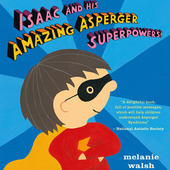
 Talking to young children about autism wasn’t something I even thought about when my twin boys were in nursery, even though unbeknown to me one of my children was autistic.
Talking to young children about autism wasn’t something I even thought about when my twin boys were in nursery, even though unbeknown to me one of my children was autistic.
Certainly signs of his autism did surface when he was there. Not making friends, a dislike of sticky art materials, getting really upset when the music class was changed to the other room and a passionate dislike of colouring in and learning to ‘write’ over yellow lines.
He didn’t have a full diagnosis of Aspergers for another four years, but I so wish it had been earlier.
Register now to continue reading
Thank you for visiting Nursery World and making use of our archive of more than 35,000 expert features, subject guides, case studies and policy updates. Why not register today and enjoy the following great benefits:
What's included
-
Free access to 4 subscriber-only articles per month
-
Unlimited access to news and opinion
-
Email newsletter providing activity ideas, best practice and breaking news
Already have an account? Sign in here
